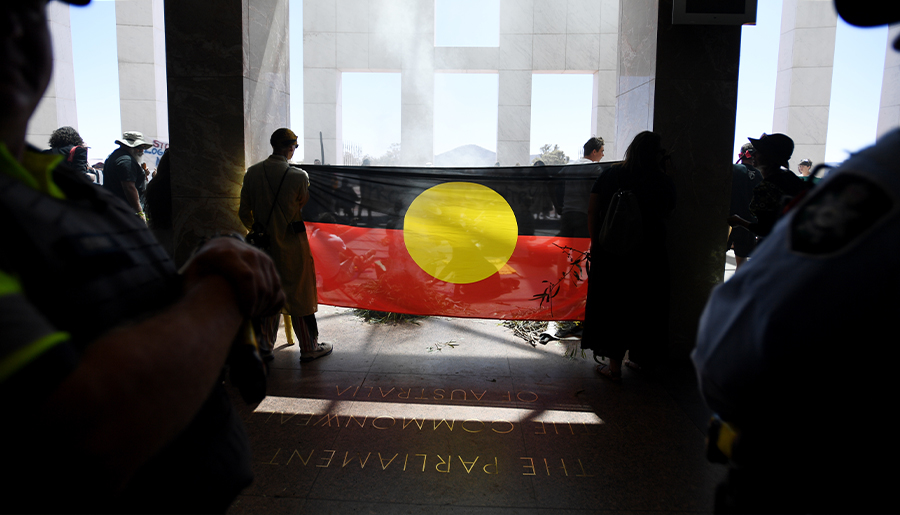On 5 July, Australia’s Opposition Leader, Peter Dutton, misspoke. He said that the Indigenous Voice to Parliament’s caucus will be made up of 24 elitist individuals.
“The Voice is a Canberra voice,” said Dutton, “it’s a grouping of 24 elites who aren’t going to represent the views of Indigenous women and elders.”
However, the Voice won’t be comprised of 24 elites. The Voice will instead be comprised of two levels and 59 members.
The foundational level, the Local and Regional Voices, will be made up of 35 individuals. These 35 members will be from 35 different Aboriginal and Torres Strait Islander communities. They will represent the voices of their Indigenous women, elders, and more.
Meanwhile, the second level is called the National Voice. This level consists of 24 Aboriginal and Torres Strait Islander individuals. However, it would be incredibly surprising if all of these people were elitists. This is because Local and Regional Voices elect their National counterparts.
Yet, none of this nuance is reflected in Dutton’s take. What’s more, this claim has circulated online with no additional info.
Now, it’s tricky to ascribe motive to Dutton’s incorrect claim. Did he say this falsehood to be malicious? Did he say it due to incompetence? Was it a mixture of both?
However, we do know one thing. When it comes to discussing the Voice and its upcoming referendum, our politicians are allowed to lie.
A Voice to Parliament’s Legal Lies
For better or worse, the reason why our Federal Members can fabricate Voice to Parliament ‘facts’ is pretty straightforward. It’s because they’ve made themselves not liable for their own actions.
According to Luke Beck, a Professor of Constitutional Law at Monash University, it would be trickier to lie about the Voice as a business. Commercial organisations are surrounded by more legal red tape.
“While Australia has laws banning businesses from engaging in deceptive and misleading advertising about their products and services, there are no equivalent federal laws that apply to politics,” Beck said.
“By contrast, South Australia and the ACT have truth-in-political-advertising laws applying to their state and territory election campaigns,” he continued.
“There is one tiny exception to the current ability to mislead voters about the referendum. It is unlawful to mislead voters about how to fill in the referendum ballot form.”
Will These Voice to Parliament Lies Go Viral?
While it’s perfectly legal for Dutton to lie about the Voice to Parliament, there’s a chance that this speech won’t go viral. This is because the owner of Facebook and Instagram, Meta, has vowed to clamp Voice misinformation.
As per Mia Garlick, Meta’s Director of Public Policy in Australia, her workplace has been prepping for this year’s referendum. Meta wants to make sure that the Voice debate is factual and not dredged in confusion.
“We are also coordinating with the government’s election integrity assurance taskforce and security agencies in the lead-up to the referendum,” said Garlick. “We’ve also improved our AI so that we can more effectively detect and block fake accounts, which are often behind this activity.”
Let’s just hope that Meta lives up to this promise. This referendum’s too important to be messed with.
Voice to Parliament Facts: How to Access Them
As it stands, RMIT ABC Fact Check, AAP Fact Check, and AFP Fact Check are all fact-checking Voice to Parliament claims. You can also go to voice.gov.au to access the factual deets.
Related: The Yes23 Campaign — What You Need to Know
Related: Voice to Parliament Facts — Here’s a Source You Can Trust
Read more stories from The Latch and subscribe to our email newsletter.







